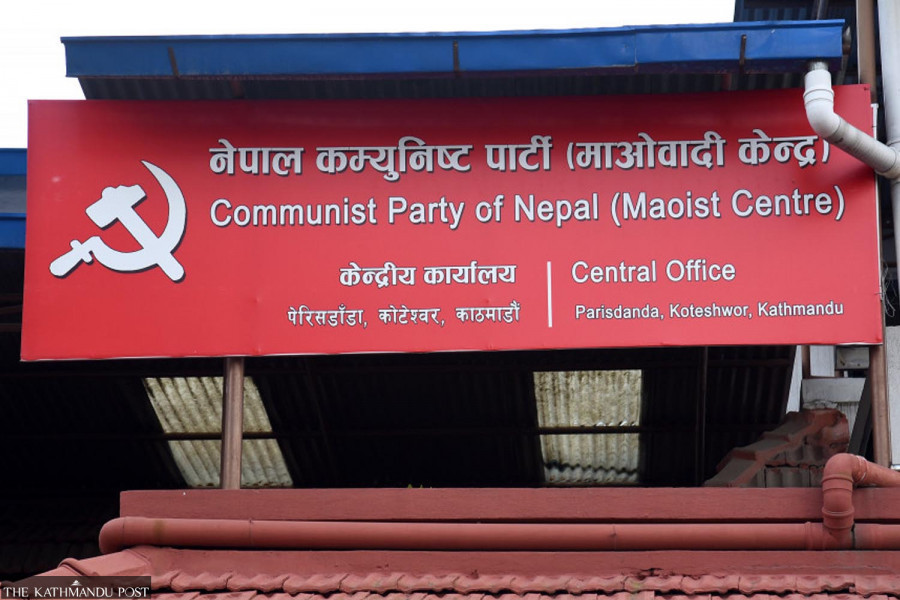Editorial
Maoist muddle
The party will be better served by reviewing its mistakes and reviving grassroots connections.
Pushpa Kamal Dahal-led CPN (Maoist Centre) suffered big losses in the November 20 elections despite its electoral alliance with four other parties. The Maoist party has fought four elections since the former armed rebels renounced violence and joined peaceful politics in 2006. It surprised many in 2008 by winning 220 seats in the 601-strong Constituent Assembly, in the process becoming the country’s biggest political force. People wanted change and voted in favour of the party at the vanguard of the revolutionary federal-republic agenda. The public also backed its agenda of inclusiveness in state organs. Above all, they were mesmerised by the larger-than-life persona of Dahal who had risked it all to build a ‘new Nepal’. The Maoists, in this way, came as a breath of fresh air.
But the party was soon entangled in Kathmandu’s power politics and started deviating from its agendas. By the second CA elections in 2013, people were already getting disillusioned by the party’s constant flip- flopping on vital issues, and relegated it to a distant-third position behind the Nepali Congress and the CPN-UML, the two mainstays of post-1990 Nepali politics. The Maoists fared somewhat better in the 2017 national elections, largely because of their left alliance with the UML. But, five years later, they have again suffered a drubbing, winning just 31 of the 275 seats in the federal parliament.
It would not be an exaggeration to say that the public image of the Maoist party and its chairman has taken a nosedive in the past 15 years. Dahal’s image has morphed from that of a selfless revolutionary to a rank opportunist ready to jump in bed with just about anyone to get to power. His party also started abandoning one after another of its signature agendas like inclusion and social justice. Meanwhile, Dahal further centralised powers and openly lobbied for greater role of his family members in national politics. His past promises of working for the benefit of the poor, oppressed and marginalised people were conveniently forgotten.
The 2022 elections, which turned out to be a referendum on the perils of ideology-lite, power-centric politics, should thus have been a wake-up call for the party. Yet the Maoist chair does not seem to have learned an iota. Instead of now working to build the party from the ground-up, he is again in negotiations to become prime minister—even though his will be a distant-third biggest party in the national parliament. Why does he want to lead the government again other than to satiate his boundless hunger for power?
This election, the candidates who worked in organisation building and had a personal touch with the electorate have been rewarded. Instead of rushing into the government, the Maoists will be better served by reviewing their mistakes, and working to revive their organisation at the grassroots. Time might also have come for its leadership to start thinking about transferring power to the next generation. Periodic renewal of leadership will serve both the party and the country well in the long run. Surely, posterity will not judge Dahal by the number of times he becomes prime minister.




 14.12°C Kathmandu
14.12°C Kathmandu














